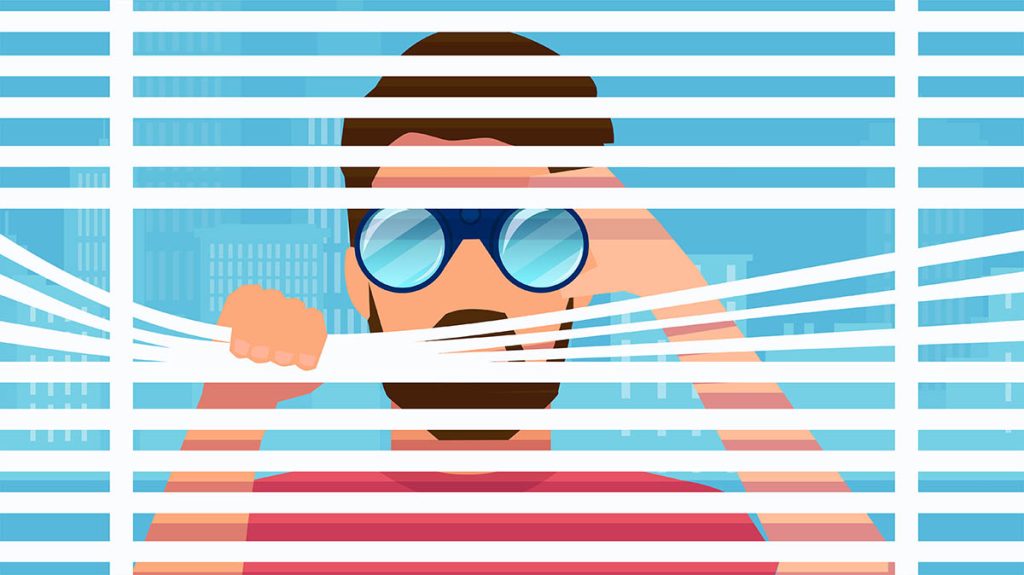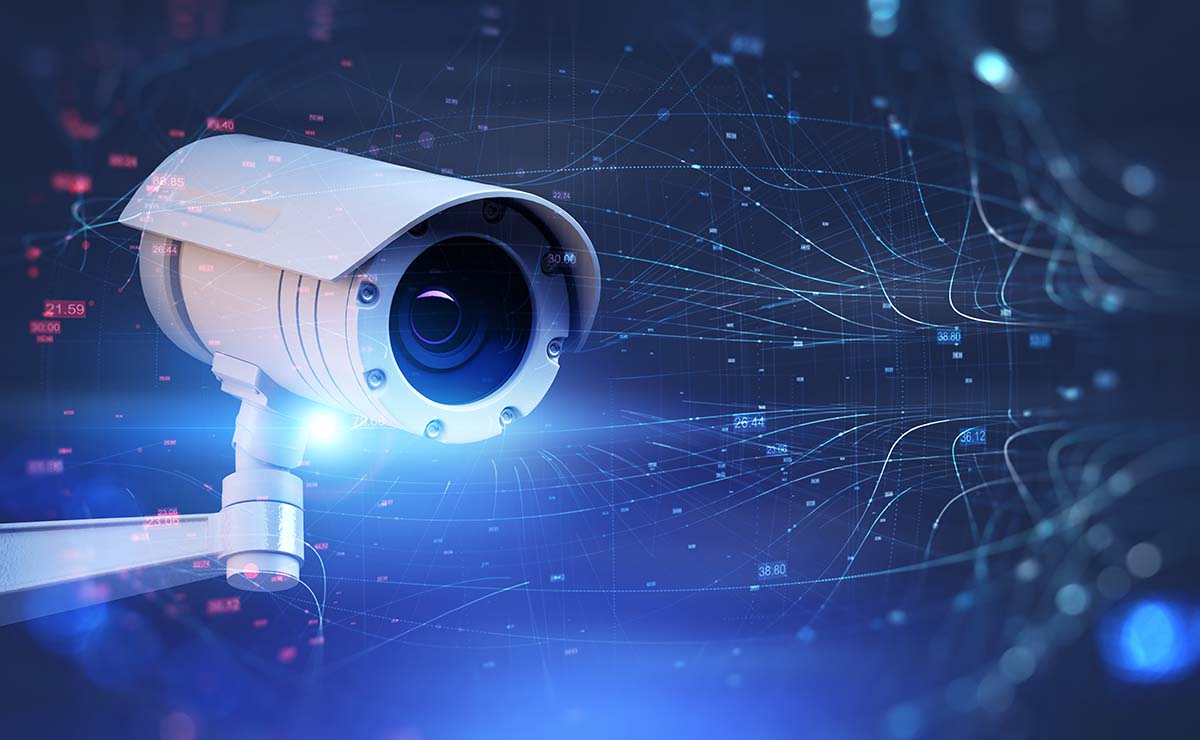Under state and federal law, it is legal to film anyone who does not have a “reasonable expectation of privacy.” In public spaces, you do not have a reasonable expectation of privacy.
Quick take:
- Only 16 states have specific video surveillance statutes. Typically the audio recording laws are much stricter than video recording.
- It is unlawful to film anyone who has a reasonable expectation of privacy without consent in 34 states.
- You may need a permit or permission to film some aspects of public buildings, airports, and other public areas.
- If you intend to fly a drone for commercial purpose, you need a remote pilot certificate from the FAA.
- Some states require two party consent and some require one when filming.
- You have a reasonable expectation of privacy in your home, clothing, personal property, bathroom, and other private areas including your bedroom.
- You do not have a reasonable expectation of privacy if you intentionally expose yourself to the public.
- Invasion of privacy is a felony or misdemeanor, depending on state law. the victim has the right to take civil action.
References
Filming privacy laws: What is a reasonable expectation of privacy?
Inside your home, you and your family have a reasonable expectation of privacy or, as some call it, “the right to be left alone.” That means any unwanted intrusion into your home, say, someone installing a camera in your home or on your property without your permission is an unlawful act. In the US, there exist at least four types of invasions of privacy torts, namely:
(1) Public disclosure of private acts.
(2) False light (Portraying an individual in an unflattering manner or out of context).
(3) Appropriation of likeness or name.
(4) Intrusion upon seclusion.
“Intrusion of seclusion” refers to laws that protect your privacy while you are in secluded areas, say, a bathroom or your home. Because of these laws, filming someone without consent in a private area or using technology to eavesdrop on someone are all crimes.
To prove that someone broke these laws, prosecutors must prove three elements:
- The plaintiff had a reasonable expectation of privacy at the time of the incident.
- Applying reasonable community standards, the intrusion would be objectionable.
- The intrusion caused suffering or mental anguish.
What if the accused does not share the photos?
Unlawful intrusion happens when you violate someone else’s right to be left alone. That means the peeking or filming individual is guilty of breach of privacy even if they do not communicate the details to a third party.
What is meant by a reasonable expectation of privacy at home?

Whether you are a homeowner or tenant, you have a reasonable expectation of privacy at home. Because of that, the property owner or any person in your home cannot legally install cameras without your consent.
What can you do if you discover a hidden camera in your home?
A hidden camera is a breach of your privacy, meaning you may take legal action against the person -be it- your spouse or property owner. However, state laws vary, meaning you should consult with an attorney in your state to find out if you have grounds to take civil action.
In your home, state and federal law protect you from interception of private communications without permission and the use of hidden cameras.
Places where you have a reasonable expectation of privacy include:
- Hotel room or bathroom
- Your place of residence
- Specific public spaces including restrooms
Can someone film me without permission on private and public property?

According to the US supreme court, the fourth amendment does not protect you if you knowingly expose yourself at home or in public. That means if you leave your blinds open and a neighbour’s security cam captures you naked, the camera owner is not guilty of violating your privacy.
On the other hand, if the neighbour takes the initiative to open your windows and film you while in your home, that individual is guilty of breach of privacy.
Note, you maintain a reasonable expectation of privacy in your belongings, clothing, and person. Consequently, in some states, upskirt photos are illegal, and in some, there is no law specifically forbidding it. For example, under Colorado code section 18-3-505.6. “Invasion of privacy for sexual gratification is a class 6 felony.
The statute reads in part, quote:
“A person who knowingly observes or takes a photograph of another person’s intimate parts without that person’s consent, in a situation where the person observed or photographed has a reasonable expectation of privacy, for the observer’s sexual gratification, commits unlawful invasion of privacy for sexual gratification.”
Section 2 b of the statute reads:
“Invasion of privacy for sexual gratification is a class 6 felony and is an extraordinary risk crime subject to the modified sentencing range”
It is worth noting that if you use highly sensitive equipment to breach someone else’s privacy, for example, zoom lenses. In some states, you could be guilty of physical trespass. That raises the question:
Can you point a security camera at your neighbor’s property?
Depending on state law, pointing a security camera at your neighbours’ property is illegal, is legal, or could be a civil or criminal offense. Because of that, if you notice a camera pointed at your property, you should check your state’s privacy laws. You may also consult with an attorney near you.
Is the camera in plain view or hidden?
If the camera is in plain view and on the neighbour’s property, the individual has committed no illegality in most states. However, if a neighbour installs a camera on your property, you may take civil action against the individual.
If you have a camera on your property that points at your neighbour’s home, you should do the following to avoid potential lawsuits or criminal prosecution:
- Make sure that the camera points to an area where the neighbor does not have a reasonable expectation of privacy such as the front door, front yard, or other areas visible from public areas. In other words, do not point the camera directly at your neighbor’s bedroom or bathroom.
- Handle the footage legally.
- The camera should be in plain view.
Note that in some states, including Georgia. If the camera is not visible, you have a legal obligation to put up a written notice warning anyone in the area that the camera is watching them. In Arkansas, you may film individuals in private spaces with consent.
Can I sue someone for recording on private property?

Yes. Invasion of privacy causes emotional and mental damage. Because of that, most states require that the invasion results in mental suffering or anguish to sue. To sue someone for the intrusion of privacy, you must demonstrate to the court two elements.
- The accused intentionally intruded upon your privacy. For example, he or she installed equipment intended to breach your privacy or the person physically intruded on your privacy. Remember, invasion of privacy can be physical and nonphysical.
- The intrusion caused you emotional or mental distress.
How do you prove emotional distress?
You must show the court that the defendant’s actions or conduct caused you emotional distress, and the distress caused is more than fleeting and is medically significant. For example, if someone secretly takes intimate photos of you and shares them on social media or with anyone. That action may affect your relationships, and it may cause excessive worry or mental anguish. In such a scenario, you have grounds to take civil action.
Filming on private property: what to remember:
- In most states, you need permission to film on private property.
- You do not need consent to film areas that are observable to the public.
- Do not peer over fences or make effort to film anyone who has a reasonable expectation of privacy.
- Filming at some public locations may require a permit
Can I sue someone for recording me without permission on public property?
The law in most states does not restrict you from filming in public, but it requires you to respect people’s privacy. Furthermore, there are some locations that, as mentioned, you are not allowed to film without a permit.
For security reasons, Federal and state laws do not allow you to film:
- Military installations
- Government buildings
- Airports, tunnels, and train stations.
Are you famous or a public figure?
Celebrities and public figures enjoy little protection against filming while in public. However, the law does not allow you to break into a celebrity’s home, vehicle, or property for the purpose of filming. Meaning, if the individual is at a location with a reasonable expectation of privacy – filming that person without consent is unlawful.
Can you film police officers in public without consent?
Yes. Under the first amendment, you have the legal right to take photos or film the police in public. That means if an officer takes your camera and deletes the footage or destroys it. You may sue that officer. If police officers are in your home, you also have the right to film them.
What to remember:
- Disobeying police commands may get you arrested. Upon arrest, you may face charges including disorderly conduct or obstructing a peace officer depending on state law.
- A police officer deleting or damaging your camera could be tampering with evidence.
- Some states allow you to take civil action against an officer that takes your camera or deletes footage.
- You may take civil action against anyone who films you while on private property without consent.
What are the penalties for illegally recording someone on private property?
Depending on state law, the equipment used, intended purpose for filming, an illegal recording could be a misdemeanor or felony. Furthermore, the victim or filmed individual may take civil action to recover damages, including emotional distress, mental anguish, loss of income, or any other claim that applies to the situation.
We recommend consulting with an attorney if you notice your image on a site or product that you did not consent to.
Can I sue someone for recording me on public property?
If anyone films you while in the bathroom or other private area, you may take civil action even if you are on public property. However, if you are in an area visible to the public, you do not have grounds to sue.
That said.
All states have “wiretapping laws,” these laws prohibit using any machine or electronic device to capture other people’s communications without consent or court approval. Additionally, the fourth amendment and the federal wiretap act also prohibit eavesdropping without consent or approval.
What that means is, if the person is in an area where there is a reasonable expectation of privacy, you cannot legally film that person without their consent. Therefore, if you have a camera in your house or recording equipment, you must ask your visitors for permission.
Note some states require one-party consent, and some require both parties to agree to a recording while in a private area.
What are your legal rights when filming in public?
- You may take photos of objects or buildings that are visible in public spaces.
- Your right to film does not allow you to break other laws, including trespass.
- Some states allow one-party consent, and some require both parties to consent to a recording.
- You may sue someone who takes photos of you in private areas at a small claims court.
Summary: can I sue someone for recording me on private or public property?

Yes. If the photo, audio, or video is captured in an area where you have a reasonable expectation of privacy. You may take civil action against the person to recover damages. However, if you expose yourself to the public, there is no reasonable expectation of privacy. Meaning you do not have legal grounds to sue.
TLDR: State privacy laws dictate where you can and cannot film. Therefore, we recommend that you always ask for consent, get permission if you intend to film public property, and if someone does not consent to film, either blur out the person’s likeness or do not film that individual. You can view individual state recording laws here – United States Recording Laws.
